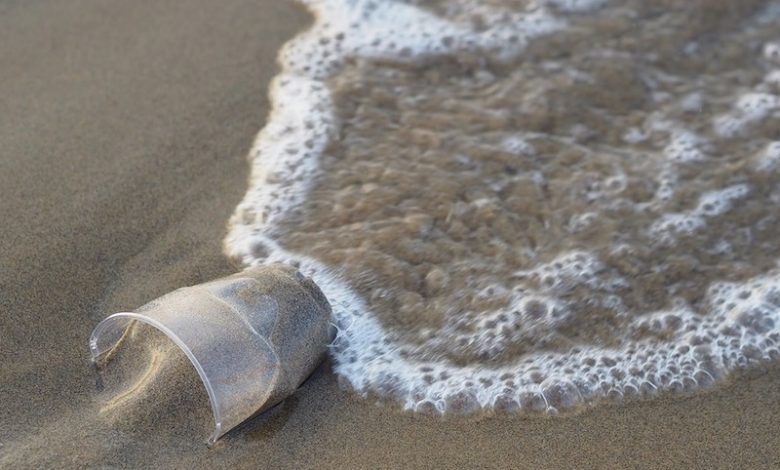India bans single use plastics on ships

India has become the world’s first country to ban single use plastics on ships, with China widely tipped to follow suit and the matter up for further discussion at the International Maritime Organization (IMO).
The Indian ban from January 1 relates to all ships calling Indian ports, or transiting Indian waters. Products on the barred list include bags, trays, containers, food packing film, milk bottles, freeze bags, shampoo bottles, ice cream containers, bottes for water and other drinks, dispensing containers for cleaning fluids, biscuit trays,hot drink cups, insulated food packing, protective packing for fragile items, microwave dishes, ice cream tubs, potato chip bags, bottle caps.
Items prohibited with immediate effect include cultery, plates, cups, drinking water bottles, garbage and shopping bags as well as dispensing containers for cleaning fluids which are less thank 10 litres in size.
Crews are required to store all banned items during port calls. Port state control will carry out checks.

It’s so easy to score by blaming and scrutinising the thoroughly organised ‘rich’ shipping, adding jobs for paper-tigers to come on board and to collect where possible. But what about the +99% garbage , that is ‘land-made’ carried by rivers and wind and that ends up in the ocean? How we are going to call such opportunistic popular eco-activism with senseless small impact on the huge problem we are facing? Shouting on clouds?
…sorring: Shooting on clouds?
The old “what about X?” objection, where addressing one part of the problem is somehow not good because it doesn’t address the whole problem. It’s the same flak that Greta Thunberg gets because she hasn’t single-handedly solved climate change overnight.
It’s the defeatist attitude of grumpy old [mostly] men; effectively saying “We can’t solve the whole problem in one go, so what’s the point in doing anything at all?”
It is not the “what about X” point of view and that every small step helps. It is just a cheap trick again to score with ‘doing things in this direction’ and then point at ships and ‘foreighners’. The problem with plastics is known; caused in developing countries. It is said that 10 rivers carry 90% of the plastics into the oceans. If India would really do something, they should start with their own country with their own people. Fact is, that putting pressure on ships and their companies is doing nothing with regard to the own country and own people. It is nowhere a bit of help to change the problem and the mindset of the people, local politics etc. who treat plastic in such a way that it ends up in rivers and in the oceans. The solution must be there where the real problem lies. On board of ships everything is already regulated, also disposal of plastics.
sometimes we have to take small steps before walking steadily, I consider this will bring some awareness
On board of ships everything is regulated, also disposal of rubbish, plastics etc. Addressing ships, crew and companies for green actionism is just shooting at clouds. It helps nothing to the problem of plastics in the ocean. The problem lies with people and their mindset in developing countries. If they are not aware of the problem, if they are not involved in keeping our planet free from plastics, plastics that you can find everywhere and that still be produced, you did not do anything. You cannot cal that even a small step. If India wants to show that they do something, then they should start with themselves. Ships, usually mostly foreign, is just the wrong addressee !